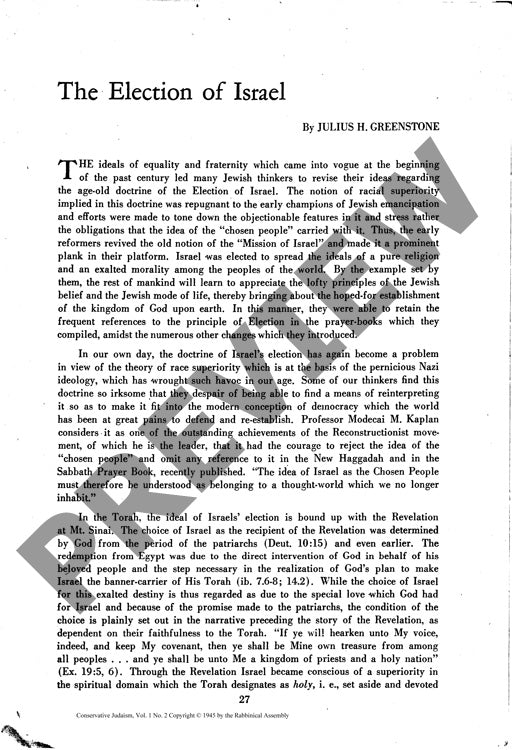The Election of Israel
Couldn't load pickup availability
The doctrine of Israel's Election - the concept of Jews as a "chosen people" - underwent radical reinterpretation as 19th-century ideals of equality challenged traditional religious thinking. Jewish theologians transformed the doctrine from perceived racial superiority into a focus on moral and religious obligations to humanity. Drawing from biblical origins at Mount Sinai and rabbinic literature through medieval philosophy, this theological evolution reflected Judaism's struggle to reconcile ancient tradition with modern democratic values. Modern critics, notably Reconstructionist leader Mordecai Kaplan, condemned the doctrine as dangerously similar to Nazi racial ideology and incompatible with democratic principles. Through textual analysis and theological argumentation, Greenstone distinguishes Election theology from supremacist ideologies by emphasizing divine obligations rather than privileges. The doctrine emerges as essential to Jewish identity, providing historical continuity and moral inspiration. Rather than rejecting this fundamental belief - a move that could threaten communal survival and religious integrity - Greenstone advocates reinterpreting Election doctrine to preserve its ethical imperatives while addressing contemporary moral sensibilities.

More Information
-
Physical Description
-
Publication Information
Published 1945
ISBN
-
Publication Credits
Julius Greenstone

